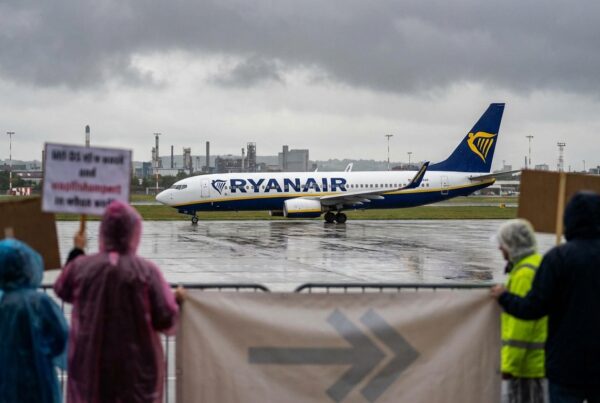SWISS's decision to ground its entire fleet ofA220-100 for an estimated period of at least 18 months not only disrupts the Swiss carrier's operations, but also raises major questions about the reliability of its engines. GTF and fleet management strategies adopted by airlines. According to Flywest, this measure is designed to secure engine availability for the airline's more numerous and strategic aircraft, while minimizing the impact on network continuity.
Why SWISS chose immobilization: technical and industrial issues
The direct cause cited by Flywest is a corrosion phenomenon affecting the engines. Pratt & Whitney GTF on some A220-100s. Rather than attempt one-off repairs on a limited number of aircraft, SWISS has opted for a radical strategy: to ground all nine A220-100s in order to salvage engines to ensure the availability of the A220-300s and other network-critical variants. This approach reflects a logic of prioritizing resources and protect operational performance on routes where frequency and capacity are crucial.
Nature of the engine problem and possible responses
A report of corrosion linked to a production defect obliges engine manufacturers and integrators to identify structural corrective actions. Technical solutions can range from in-depth maintenance operations to design improvements by the engine manufacturer, but these steps take time and can impact the supply chain for spare parts and replacement engines. For SWISS, grounding creates a reserve of parts and engines, reducing the risk of massive downtime on key network aircraft.
Operational consequences: capacity, connectivity and use of partners
On the operational front, Flywest reports that SWISS will ensure the continuity of its strategic routes through external solutions and fleet adjustments. Flights serving demanding airports, such as London CitySome routes will be operated with leased aircraft or redeployed from other fleets. This reorganization calls for rapid commercial and operational negotiations to limit the impact on passengers and on network punctuality.
Impact on passengers: tickets, connections and experience
For passengers, the grounding of the A220-100 means crew changes, aircraft changes and, potentially, variations in onboard comfort. Flywest reports that SWISS will implement alternative solutions to ensure continuity of existing bookings, with targeted communications to impacted customers. The situation may generate slightly longer connections or class-of-service changes, but the priority is to preserve flight reliability and operational safety.
Commercial and financial impact
The direct cost of prolonged downtime, combined with maintenance operations and any aircraft leasing, weighs heavily on the accounts. Beyond the immediate costs, the crisis highlights the risks associated with dependence on an engine type shared by several aircraft families. Companies operating aircraft equipped with GTF may have to anticipate similar adjustments, increase their maintenance provisions and review warranty contracts with engine manufacturers.
What does this episode mean for the European and global airline industry?
The case is a reminder that the transition to more economical and complex engines also brings industrial challenges. While the fuel consumption and emissions performance of GTF have been hailed, their ramp-up requires strong coordination between engine manufacturers, OEMs, leasing companies and airlines to manage large-scale incidents. Flywest stresses that this episode could accelerate discussions on the resilience of supply chains, fleet modularity and spare parts pooling strategies within airline groups.
The message for passengers and transport operators
For passengers, the advice is to remain attentive to their carrier's communications and anticipate any possible travel modifications. For airlines and authorities, the alert is to plan proactively and to improve visibility of industrial risks. SWISS, in choosing a conservative policy geared towards stabilizing the network, illustrates a pragmatic method of crisis management that favors safety and the continuity service, at the cost of short-term adjustments.
Over the coming months, developments in this area - including the engine manufacturer's corrective measures, the availability of parts and the timetable for returning A220-100s to service - will determine the true extent of the impact. Flywest will continue to monitor and report on developments in order to enlighten passengers and industry professionals.




